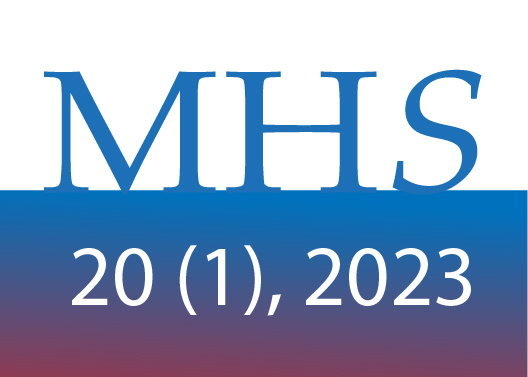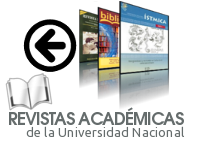El Análisis de los polimorfismos ECA y ACTN3 con la agilidad en seleccionados nacionales de deportes de conjunto de Costa Rica. Estudio piloto
DOI:
https://doi.org/10.15359/mhs.20-1.9Palabras clave:
deportes colectivos, gen ACTN3, gen ECA, genéticaResumen
Objetivo: Analizar las diferencias de los polimorfismos de los genes ECA y ACTN3 en el rendimiento de una prueba de agilidad en jugadores élite de deportes colectivos pertenecientes a selecciones nacionales de Costa Rica.
Metodología: Se contó con una muestra de 33 jugadores hombres, de deportes colectivos (fútbol sala, rugby, voleibol y balonmano). Para la evaluación de la agilidad se utilizó el test de Illinois. Se realizaron dos visitas, en la primera se obtuvo muestras de células por medio de un enjuague y en la segunda se aplicó la prueba de agilidad. Se utilizó la prueba de Chi-cuadrado (X2) para conocer las diferencias entre las frecuencias de los polimorfismos de los genes ECA y ACTN3 y el tipo de deporte.
Resultados: La mayor distribución de los polimorfismos del gen ECA, de jugadores de selecciones nacionales de deportes de conjunto, se encuentra en el ID (X2= 6.87, p= .334) y en ACTN3 el RX (X2= 6.33, p= .388). Además, tampoco se encontraron diferencias significativas entre el tiempo efectuado en el test de Illinois y los polimorfismos del gen ECA (F= 2.150, p= .134), de igual forma para los polimorfismos del gen ACTN3 (F= .950, p= .339).
Conclusiones: Los polimorfismos de los genes ECA y ACTN3 no se relacionaron estadísticamente con el tipo de deporte colectivo. La agilidad no se ve asociada por un tipo de polimorfismo, lo que indica que, de forma independiente al gen, esta cualidad física se puede entrenar y generar buenos resultados en la población en general.
Referencias
Ahmetov, I., Egorova, E., Gabdrakhmanova, L., & Fedotovskaya, O. (2016). Genes and Athletic Performance: An Update. Medicine and Sport Science, 61, 41-54. https://doi.org/10.1159/000445240
Aidar, M., & Line, S. (2007). A simple and cost-effective protocol for DNA isolation from buccal epithelial cells. Brazilian Dental Journal, 18(2), 148-152. https://doi.org/10.1590/S0103-64402007000200012
Alfred, T., Ben-Shlomo, Y., Cooper, R., Hardy, R., Cooper, C., Deary, I., Gunnell, D., Harris, S., Kumari, M., Martin, R., Moran, C., Pitsiladis, Y., Ring, S., Sayer, A., Smith, G., Starr, J., Kuh, D., & Day, I. (2011). ACTN3 genotype, athletic status, and life course physical capability: Meta-analysis of the published literature and findings from nine studies. Human Mutation, 32(9), 1008-1018. https://doi.org/10.1002/humu.21526
Arroyo, W. (2021). Genética y fútbol: Asociación de los polimorfismos genéticos ACTN3 y ACE-I/D en jugadores de fútbol: Revisión literaria. Retos, 39. https://doi.org/10.47197/retos.v0i39.79347
Barbosa, D., Mendoza, E., Cruz, I., Magalhães, B., Kappes, L., Cruz, E., Santos, M., & Silami, E. (2018). Evidence for a Role of ACTN3 R577X Polymorphism in Football Player’s Career Progression. International Journal of Sports Medicine, 39(14), 1088-1093. https://doi.org/10.1055/a-0753-4973
Caló, M., & Vona, G. (2008). Gene polymorphisms and elite athletic performance. Journal of Anthropological Sciences = Rivista Di Antropologia : JASS, 86, 113-131.
Cięszczyk, P., Leońska-Duniec, A., Maciejewska-Skrendo, A., Sawczuk, M., Leźnicka, K., Contrò, V., Trybek, G., & Lulińska-Kuklik, E. (2016). Variation in the ACE gene in elite Polish football players. Human Movement, 17(4), 237-241. https://doi.org/10.1515/humo-2016-0032
Dawes, J. (2019). Developing Agility and Quickness (2nd Edition). Human Kinetics. https://us.humankinetics.com/products/developing-agility-and-quickness-online-ce-course-2nd-edition
Dionísio, T., Thiengo, C., Brozoski, D., Dionísio, E., Talamoni, G., Silva, R., Garlet, G., Santos, C., & Amaral, S. (2017). The influence of genetic polymorphisms on performance and cardiac and hemodynamic parameters among Brazilian soccer players. Applied Physiology, Nutrition, and Metabolism, 42(6), 596-604. https://doi.org/10.1139/apnm-2016-0608
Egorova, E., Borisova, A., Mustafina, L., Arkhipova, A., Gabbasov, R., Druzhevskaya, A., Astratenkova, I., & Ahmetov, I. (2014). The polygenic profile of Russian football players. Journal of Sports Sciences, 32(13), 1286-1293. https://doi.org/10.1080/02640414.2014.898853
Eynon, N., Alves, A., Yamin, C., Sagiv, M., Duarte, J., Oliveira, J., Ayalon, M., Goldhammer, E., Sagiv, M., & Meckel, Y. (2009). Is there an ACE ID - ACTN3 R577X polymorphisms interaction that influences sprint performance? International Journal of Sports Medicine, 30(12), 888-891. https://doi.org/10.1055/s-0029-1238291
Eynon, N., Banting, L., Ruiz, J., Cieszczyk, P., Dyatlov, D., Maciejewska-Karlowska, A., Sawczuk, M., Pushkarev, V., Kulikov, L., Pushkarev, E., Femia, P., Stepto, N., Bishop, D., & Lucia, A. (2013). ACTN3 R577X polymorphism and team-sport performance: A study involving three European cohorts. Journal of Science and Medicine in Sport, 17(1), 102-106. https://doi.org/10.1016/j.jsams.2013.02.005
Eynon, N., Ruiz, J., Femia, P., Pushkarev, V. P., Cieszczyk, P., Maciejewska-Karlowska, A., Sawczuk, M., Dyatlov, D., Lekontsev, E., Kulikov, L., Birk, R., Bishop, D., & Lucia, A. (2012). The ACTN3 R577X polymorphism across three groups of elite male European athletes. PloS One, 7(8), e43132. https://doi.org/10.1371/journal.pone.0043132
Eynon, N., Ruiz, J. R., Oliveira, J., Duarte, J. A., Birk, R., & Lucia, A. (2011). Genes and elite athletes: A roadmap for future research. The Journal of Physiology, 589(13), 3063-3070. https://doi.org/10.1113/jphysiol.2011.207035
Ferreira, A., Caniuqueo, A., Hernández, C., da Silva, S., Izquierdo, M., Silva, H., Ramirez-Campillo, R., & Fernandes, J. (2015). Polimorfismo del Gen ACTN3 y ECA en Seleccionados de Gimnasia de Brasil y Japón. International Journal of Morphology, 33(1), 262-266. https://doi.org/10.4067/S0717-95022015000100041
Galeandro, V., Notarnicola, A., Bianco, A., Tafuri, S., Russo, L., Pesce, V., Moretti, B., & Petruzzella, V. (2017). ACTN3/ACE genotypes and mitochondrial genome in professional soccer players’ performance. Journal of Biological Regulators and Homeostatic Agents, 31(1), 207-213.
Gineviciene, V., Jakaitiene, A., Aksenov, M., Aksenova, A., Druzhevskaya, A., Astratenkova, I., Egorova, E., Gabdrakhmanova, L., Tubelis, L., Kucinskas, V., & Utkus, A. (2016). Association analysis of ACE, ACTN3 and PPARGC1A gene polymorphisms in two cohorts of European strength and power athletes. Biology of Sport, 33(3), 199-206. https://doi.org/10.5604/20831862.1201051
Gineviciene, V., Jakaitiene, A., Tubelis, L., & Kucinskas, V. (2014). Variation in the ACE, PPARGC1A and PPARA genes in Lithuanian football players. European Journal of Sport Science, 14(1), S289-295. https://doi.org/10.1080/17461391.2012.691117
Gunel, T., Gumusoglu, E., Hosseini, M., Yilmazyildirim, E., Dolekcap, I., & Aydinli, K. (2014). Effect of angiotensin I-converting enzyme and α-actinin-3 gene polymorphisms on sport performance. Molecular Medicine Reports, 9(4), 1422-1426. https://doi.org/10.3892/mmr.2014.1974
Heffernan, S., Kilduff, L., Erskine, R., Day, S., McPhee, J., McMahon, G., Stebbings, G., Neale, J., Lockey, S., Ribbans, W., Cook, C., Vance, B., Raleigh, S., Roberts, C., Bennett, M., Wang, G., Collins, M., Pitsiladis, Y., & Williams, A. (2016). Association of ACTN3 R577X but not ACE I/D gene variants with elite rugby union player status and playing position. Physiological Genomics, 48(3), 196-201. https://doi.org/10.1152/physiolgenomics.00107.2015
Jeremic, D., Zivanovic, I., Vulovic, M., Stevanovic, J., Radovanovic, D., Varjacic, V., & Djordjevic, D. (2019). ACE/ACTN3 genetic polymorphisms and athletic performance of female soccer players`. Revista Brasileira de Medicina Do Esporte, 25(1), 35-39. https://doi.org/10.1590/1517-869220192501187684
Koku, F., Karamızrak, S., Çiftçi, A. S., Taşlıdere, H., Durmaz, B., & Çoğulu, Ö. (2019). The relationship between ACTN3 R577X gene polymorphism and physical performance in amateur soccer players and sedentary individuals. Biology of Sport, 36(1), 9-16. https://doi.org/10.5114/biolsport.2018.78900
Ma, F., Yang, Y., Li, X., Zhou, F., Gao, C., Li, M., & Gao, L. (2013). The association of sport performance with ACE and ACTN3 genetic polymorphisms: A systematic review and meta-analysis. PloS One, 8(1), e54685. https://doi.org/10.1371/journal.pone.0054685
Macarthur, D., & North, K. (2005). Genes and human elite athletic performance. Human Genetics, 116(5), 331-339. https://doi.org/10.1007/s00439-005-1261-8
Massidda, M., Corrias, L., Scorcu, M., Vona, G., & Calò, M. (2012). ACTN-3 and ACE genotypes in elite male Italian athletes. Anthropological Review, 75(1), 51-59. https://doi.org/10.2478/v10044-012-0004-4
Moraes, V. N., Trapé, A. A., Ferezin, L. P., Gonçalves, T. C. P., Monteiro, C. P., & Bueno, C. R. (2018). Association of ACE ID and ACTN3 C>T genetic polymorphisms with response to a multicomponent training program in physical performance in women from 50 to 70 years. Science & Sports, 33(5), 282-290. https://doi.org/10.1016/j.scispo.2018.03.077
Morales, M., Sentchilo, V., Bertelli, C., Komljenovic, A., Kryuchkova-Mostacci, N., Bourdilloud, A., Linke, B., Goesmann, A., Harshman, K., Segers, F., Delapierre, F., Fiorucci, D., Seppey, M., Trofimenco, E., Berra, P., Taher, A. E., Loiseau, C., Roggero, D., Sulfiotti, M., Etienne, A., Ruiz, G., Pillard, L., Escoriza, A., Moritz, R., Schneider, C., Alfonso, E., Jeddou, F., Selmoni, O., Resch, G., Greub, G., Emery, O., Dubey, M., Pillonel, T., Robinson-Rechavi, ,M. & van der Meer, J. R. (2016). The Genome of the Toluene-Degrading Pseudomonas veronii Strain 1YdBTEX2 and Its Differential Gene Expression in Contaminated Sand. PLOS ONE, 11(11), e0165850. https://doi.org/10.1371/journal.pone.0165850
Orozco-Diaz, A., Moncada-Jiménez, J., & Leal, A. (2019). Allelic and genotypic frequencies of Actinin 3 gene (ACTN3) in the Costa Rican population and its association with physical fitness in college students. Biology of Exercise, 15(1). 1-12. https://doi.org/10.4127/jbe.2019.0142
Orysiak, J., Mazur-Różycka, J., Busko, K., Gajewski, J., Szczepanska, B., & Malczewska-Lenczowska, J. (2018). Individual and Combined Influence of ACE and ACTN3 Genes on Muscle Phenotypes in Polish Athletes. Journal of Strength and Conditioning Research, 32(10), 2776-2782. https://doi.org/10.1519/JSC.0000000000001839
Papadimitriou, I. D., Lucía, A., Pitsiladis, Y., Pushkarev, V., Dyatlov, D., Orekhov, E., Artioli, G., Guilherme, J., Lancha, A., Ginevičienė, V., Cieszczyk, P., Maciejewska-Karlowska, A., Sawczuk, M., Muniesa, C., Kouvatsi, A., Massidda, M., Calò, C., Garton, F., Houweling, P., Wang, G., Austin, K., Druzhevskaya, A., Astratenkova, I., Ahmetov, I., & Eynon, N. (2016). ACTN3 R577X and ACE I/D gene variants influence performance in elite sprinters: A multi-cohort study. BMC Genomics, 17, 285. https://doi.org/10.1186/s12864-016-2462-3
Santiago, C., González-Freire, M., Serratosa, L., Morate, F., Meyer, T., Gómez-Gallego, F., & Lucía, A. (2008). ACTN3 genotype in professional soccer players. British Journal of Sports Medicine, 42(1), 71-73. https://doi.org/10.1136/bjsm.2007.039172
Sheppard, J., & Young, W. (2006). Agility literature review: Classifications, training and testing. Journal of Sports Sciences, 24(9), 919-932. https://doi.org/10.1080/02640410500457109
Stewart, P., Turner, A., & Miller, S. (2014). Reliability, factorial validity, and interrelationships of five commonly used change of direction speed tests. Scandinavian Journal of Medicine & Science in Sports, 24(3), 500-506. https://doi.org/10.1111/sms.12019
Ulucan, K., Sercan, C., & Biyikli, T. (2015). Distribution of Angiotensin-1 Converting Enzyme Insertion/Deletion and α-Actinin-3 Codon 577 Polymorphisms in Turkish Male Soccer Players. Genetics & Epigenetics, 7, 1-4. https://doi.org/10.4137/GEG.S31479
Yang, N., MacArthur, D., Gulbin, J., Hahn, A., Beggs, A., Easteal, S., & North, K. (2003). ACTN3 genotype is associated with human elite athletic performance. American Journal of Human Genetics, 73(3), 627-631. https://doi.org/10.1086/377590
Descargas
Publicado
Cómo citar
Número
Sección
Licencia
Condiciones generales

MHSalud: Revista en Ciencias del Movimiento Humano y Salud por Universidad Nacional se encuentra bajo una Licencia Creative Commons Atribución-NoComercial-SinDerivadas 3.0 Costa Rica.
La revista se aloja en repositorios de acceso abierto como el Repositorio Institucional de la Universidad Nacional, el Repositorio Kimuk de Costa Rica y la Referencia.
La fuente editorial de la revista debe reconocerse. Para ello utilice el identificador doi de la publicación.
Política de autoarchivo: La revista permite el auto archivo de los artículos en su versión arbitrada, editada y aprobada por el Consejo Editorial de la Revista para que sean disponibles en Acceso Abierto a través de Internet. Más información en el siguiente link: https://v2.sherpa.ac.uk/id/publication/25815


















